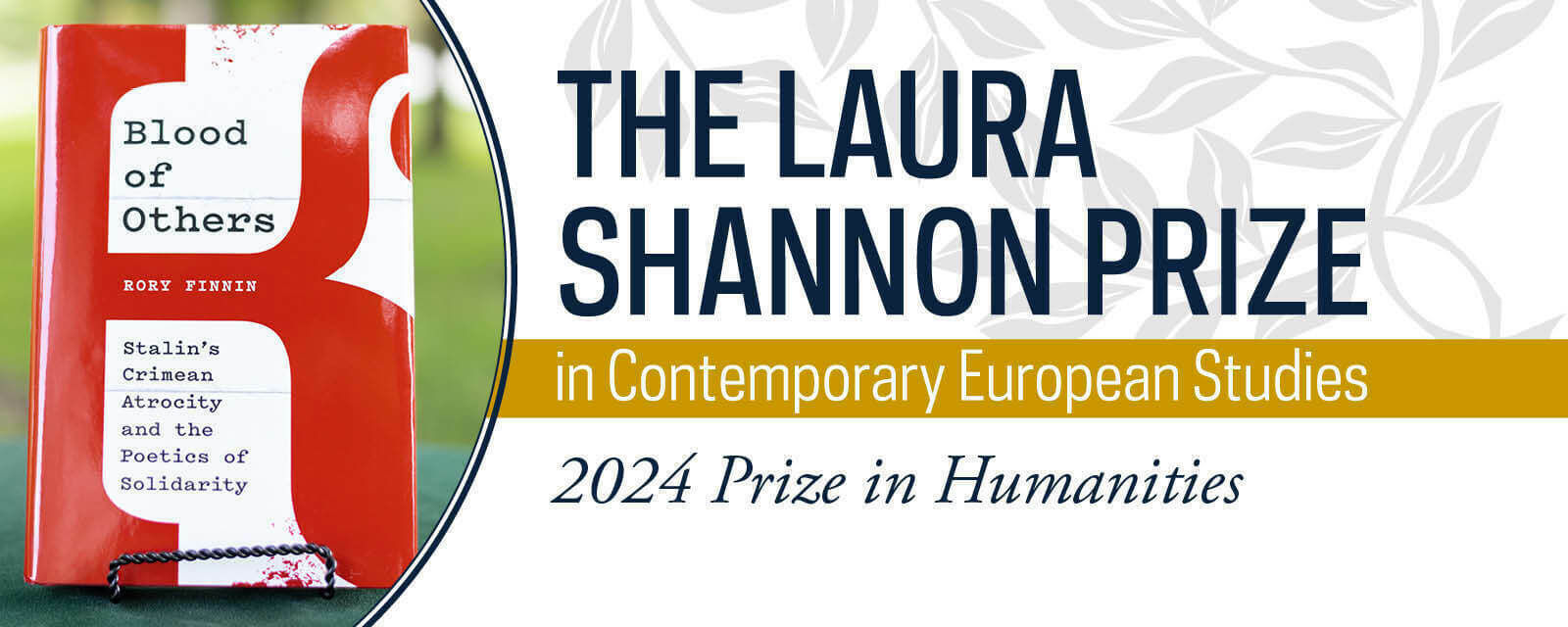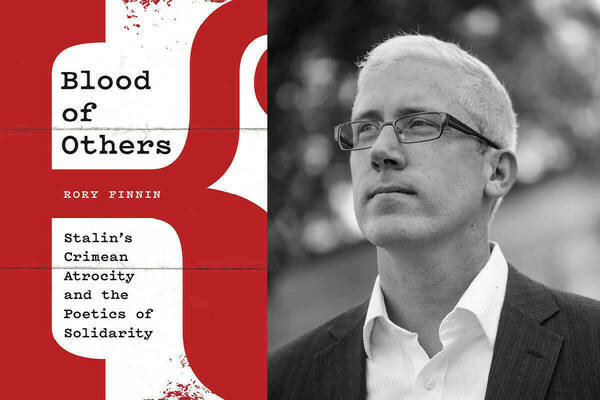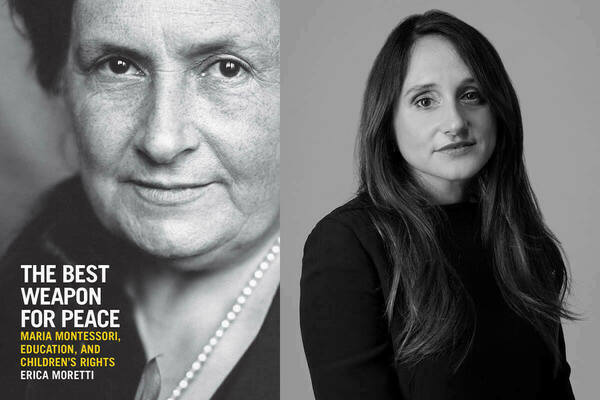
The Nanovic Institute for European Studies at the University of Notre Dame has awarded the 2024 Laura Shannon Prize in Contemporary European Studies to Rory Finnin, professor of Ukrainian studies at the University of Cambridge, for his book “Blood of Others: Stalin's Crimean Atrocity and the Poetics of Solidarity,” published by University of Toronto Press.
The $10,000 Laura Shannon Prize, one of the preeminent prizes for European studies, is awarded each year to the best book that transcends a focus on any one country, state, or people to stimulate new ways of thinking about contemporary Europe as a whole. This year’s cycle of the award considered books in the humanities published in 2021 and 2022.

In its statement, the final jury praised Finnin’s work as a major contribution toward understanding the history and mechanisms of imperialism and resistance in the Black Sea region:
“Rory Finnin’s extraordinary study, ‘Blood of Others: Stalin’s Crimean Atrocity and the Poetics of Solidarity,’ forges breakthrough integrations between Slavic and Middle Eastern Studies to open up and adroitly explore a largely understudied ‘contact zone’ of imperial politics central to the ongoing re-shaping of European conflict today: Stalin’s 1944 forced deportation of Crimean Tatars, a small Sunni Muslim nation, from its ancestral homeland. Approaching Black Sea imperial politics in ways that draw upon and extend more familiar studies of cultural strife throughout the Mediterranean Rim, Finnin’s deeply researched and eloquently written study tracks the historical record of Black Sea contact zone experience among Russian, Ukrainian, Turkish, and Crimean Tatar cultures from the eighteenth century up to the 1944 atrocity—which cost the lives of great numbers of Crimean Tatars, mostly women, children, and the elderly—and its aftermath in more recent revisions of Soviet history. Finnin’s impressive range of linguistic skills enables him to examine the subtleties of original poetry and prose writings from each of these cultures that resist the tyrannies of imperial domination and inspire sympathy and understanding for ethnic ‘Others.’ Drawing on the theoretical work of Richard Rorty and Martha Nussbaum in particular, Finnin strikingly demonstrates the catalytic power of a ‘poetics of solidarity’ to enact social reform and justice. ‘Reading,’ as Finnin concisely puts it, ‘stops bleeding.’ The relevance of this book for the current war in Ukraine, as well as ethnic conflict zones throughout Slavic Europe and the Middle East, makes it essential reading for anyone engaged with the history, past and present, of resistance to imperial domination within and throughout the borders of Europe.”

The final jury also awarded a Laura Shannon Prize Silver Medal, which carries a monetary prize, to Katerina Clark, B. E. Bensinger Professor of Comparative Literature and Slavic Languages and Literatures at Yale University. Commending Clark’s work “Eurasia without Borders: The Dream of a Leftist Literary Commons,” published by Harvard University Press, the final jury wrote:
“Deeply researched and expertly written, Katerina Clark’s ‘Eurasia without Borders: The Dream of a Leftist Literary Commons 1919-1943’ is a path-breaking study of the Soviet ambition to create an international ‘leftist literary commons.’ Clark invites us to reimagine the territory of Modernist ‘world literature’ as she also raises significant questions about the political aims and consequences of literary forms. Russia’s turn to the East, with its mandate that Moscow remain the ‘center,’ here stands in dramatic contrast to the Paris and Berlin-located models of global republics of letters that have dominated Modernist studies. Clark narrates the ways earlier tenets of socialist realism were replaced by a broader set of aesthetic possibilities as the aim of anti-imperialism gave way to anti-fascism. In doing so, she enriches our sense of how an obligation to the representation of proletarian life famously came into tension with the formal ambitions of the radical avant-garde. She traces the complex networks and reciprocal relationships between internationalist literary figures as they promoted a left agenda, forging new audiences of South and East Asian, Soviet, and European readers. Throughout, Clark offers detailed and fully contextualized accounts of individual artists and individual works. To be cosmopolitan in this world meant not so much to take an urbane and high culture viewpoint, but to become familiar with, and represent, the worlds of the working class wherever they were found. With ‘Eurasia without Borders,’ Katerina Clark truly redraws the map of twentieth-century comparative literature.”

The jury also awarded an Honorable Mention to Erica Moretti, assistant professor of Italian at the Fashion Institute of Technology-SUNY, for her book, “The Best Weapon for Peace: Maria Montessori, Education, and Children's Rights,” published by University of Wisconsin Press. In its statement, the final jury praised Moretti’s ability to expand significantly upon past accounts of Montessori’s career:
“Erica Moretti's book is an elegantly written work that fundamentally reshapes our understanding of Maria Montessori, the prominent educational theorist of the 20th century whose work continues to exert significant influence in contemporary times. Drawing upon an extensive array of historical sources stretching from Italy to India, Moretti skillfully delineates Montessori's core aspiration: the advancement of global peace through the nurturing of children into empathetic and tolerant world citizens. Her interactions with influential figures of her era, including scholars such as Anna Freud and, during her residence in India, the renowned social activist and pacifist Mahatma Gandhi, unveil a multifaceted persona that transcends her role as an educator, encompassing that of philosopher, anthropologist, and diplomat. Erica Moretti's book stands as an eloquent testament to the enduring and profound significance of Montessori's vision and to the responsibility that intellectuals and educators can shoulder in times of political upheaval and crises.”
The 2024 prize jury was composed of an accomplished group of scholars from the humanities at both American and European universities:
-
Eliot Borenstein, professor of Russian & Slavic studies at New York University;
-
Nicola Gess, professor of German literature at the University of Basel;
-
Gregory Kucich, professor of English at the University of Notre Dame;
-
Heather Hyde Minor, professor of art history at the University of Notre Dame; and
-
Susan Stewart, Avalon Foundation University Professor of the Humanities, Emerita, at Princeton University.
Now in its 15th year, the Laura Shannon Prize is made possible through a generous endowment from Laura Shannon (1939-2021) and her husband, Michael, class of ’58. Laura Shannon became a member of the Nanovic Institute’s advisory board in 2003, where she served skillfully for many years. As well as her work in social services and family court mediation, she was a regular visitor to Europe, particularly to France where she honed her language skills and explored libraries and cultural centers. Claire Shannon Kelly and Katie Shannon carry on their parents’ legacy as members of the institute’s advisory board.
The Laura Shannon Prize is now accepting nominations for its 2025 prize in history and social sciences. Books published in 2022 or 2023 are eligible, and nominations are due March 1, 2024.
The Nanovic Institute, as part of the Keough School of Global Affairs, seeks to enrich the intellectual culture of Notre Dame by creating an integrated, interdisciplinary home for students, faculty, and visiting scholars to explore the evolving ideas, cultures, traditions, beliefs, moral challenges, and institutions that shape Europe. The Laura Shannon Prize serves an integral role in this mission by connecting the most groundbreaking scholarship in European studies to the Notre Dame community.
For additional information about the Nanovic Institute and the Laura Shannon Prize, visit nanovic.nd.edu/prize.